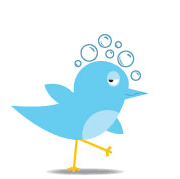 This is the post I haven’t wanted to write for weeks. This is the post no one wants to write. No one wants to say Twitter is in trouble. That’s like shooting your best friend’s dog.
This is the post I haven’t wanted to write for weeks. This is the post no one wants to write. No one wants to say Twitter is in trouble. That’s like shooting your best friend’s dog.
But I’m increasingly convinced that Twitter is operationally in trouble, for a lot of the same reasons that Fortune’s Jessi Hempel outlines in her cover today, and other reasons I’ve been hearing about for months.
The signs:
1. Three CEOs in less than three years is never a good sign. Jack Dorsey was the clear visionary of this company, and as we’ve seen with Square, a visionary beyond Twitter. Evan Williams was the guy who saw the promise of Twitter, invested his own money in it and made sure it actually became a company. Without either of them, Twitter would not exist. But the two couldn’t coexist at the company.
So what does the company do? Well it tried Dorsey running it; it tried Williams running it and for a variety of reasons– some documented and some not– neither worked. Everyone I’ve spoken with in the industry and at the company says CEO #3, Dick Costolo, has what the others lacked– he’s an amazing operator. But that’s a Sheryl Sandberg. Twitter needs a Mark Zuckerberg if it’s going to be more than acquisition bait. It needs a product visionary, which leads us to point number 2….
2. A product visionary, at a minimum, is a full time job. At most great technology companies the product visionary is the CEO– think Amazon’s Jeff Bezos, Apple’s Steve Jobs, Zynga’s Mark Pincus, Salesforce’s Marc Benioff, Oracle’s Larry Ellison and of course Facebook’s Zuckerberg. Plenty of research has shown that when a product-oriented founder stays the CEO the company tends to excel. But for a variety of reasons, this doesn’t always work out. That doesn’t mean a company is toast. Titles are just titles. In an earlier era, Sandberg might have been named Facebook’s “grown up” CEO ala Google.
But at a minimum, a company centered around a surging, beloved, disruptive product needs a full-time, in-house C-level executive who is focused 100% on product– not only 40 hours a week, but every second of every day. Despite early reports when he stepped down, that is not Williams. He has stepped into a board member and advisor role, eyeing his next thing. And, as Fortune reports via unnamed sources, that is not Dorsey.
And really, that Fortune story shouldn’t be a surprise, although Dorsey denies telling anyone it is a short-term gig. Of course Twitter’s product visionary can’t be Dorsey– he has a full-time job running Square. Square– while a potentially a more disruptive company than Twitter– has a long way to go on distribution, business model and execution. Time-sharing Square’s product visionary– long term– just hurts both companies. If Dorsey is going to do a great job at either, he has to pick.
There are few examples of even the best entrepreneurs and CEOs managing two more-than-full-time jobs. Steve Jobs comes to mind being CEO of Apple and Pixar, but he was clearly more hands on at the former. He wasn’t brainstorming Finding Nemo or sketching out fish, while he was dreaming up the look and feel of the iPod. Elon Musk comes to mind with Tesla and SpaceX, but he has always conceded it is not sustainable.
I’d heard speculation earlier this week that Dorsey might pick Twitter, stepping into a chairman role at Square and leaving the day-to-day responsibility to Keith Rabois, who has had plenty of startup experience with PayPal, LinkedIn and Slide. If you want to stretch the Jobs analogy, that’s was essentially his path in leaving Pixar and returning to Apple for redemption and glory. But if I had to bet, I’d go with Fortune’s sources and guess Twitter is the more temporary post.
That means Twitter needs to find an amazing product visionary– stat. (To Twitter’s credit, some attempts at this have been thwarted.)
3. This is more important for Twitter than it might be at a lot of tech companies because product is the thing that is unequivocally working. Sure it has glitches, and sure it hasn’t shown dramatic innovation, but it doesn’t matter. People love it. It has transformed how the media works. And it has the one thing Facebook lacks: Celebrities all over the place. The reason Twitter is worth billions of dollars is the product.
It makes sense that Costolo would be focused on revenues and operations– those are his strengths and Twitter’s weakest spots. Reports Twitter’s revenues are higher than many expected, but they’re still in the low hundreds of millions of dollars. That’s a lot lower than most Valley companies valued at several billion dollars. And I’ve heard from a dozen sources that Twitter has been a mess operationally. I’ve heard there’s a rift between older employees owning most the stock and working fewer hours than newer employees hired by the hard-charging Costolo. And that makes sense, given the three CEOs the staff has been hired by and variously reported to.
Most people I’ve spoken with seem confident Costolo can fix these problems. Here at TechCrunch, we salute the ballsy stance he’s taken on San Francisco’s payroll tax— which potentially benefits the entire ecosystem. But what gives him cover to do that is the product continuing to grow and delight its users. Twitter absolutely can not afford to get complacent at product as it’s turning this corner. If it does, it risks looking uncomfortably like MySpace in its glory years– an innovative product people loved with loads of celebrity cache that had no innovation and was out-gunned and out-maneuvered by Facebook.
4. Please don’t settle for the acquisition, Twitter. On a day-to-day basis I use Twitter more than any other Web 2.0 product, and it’s transformed the distribution of TechCrunch. It’s the realization of the early promise of Digg’s mission to up-end the media business. I would hate to see it gobbled up as a pawn in the war between Google and Facebook. Twitter is better than that. Twitter is more important than that.
When Williams was running it, the odds seemed remote– barring an obscene offer from Google– because Williams had been down that route before with Blogger and didn’t exactly relish the experience, even being a part of a smaller, more nimble and pre-IPO version of Google.
But now Williams is gone. Dorsey is half-there. I have an uncomfortable feeling that if the product void isn’t filled by someone dynamic, Twitter will start to sputter and that several billion dollar purchase offer will be impossible to turn down. I don’t want to be alarmist– Twitter isn’t at that point now. But it’s at that crossroads now, where it needs to get back on the path to building the next great public Web company or pick the path of inevitable acquisition.
Twitter has a great board, a stable CEO and the goodwill of nearly all of Silicon Valley. This doesn’t have to end badly.
